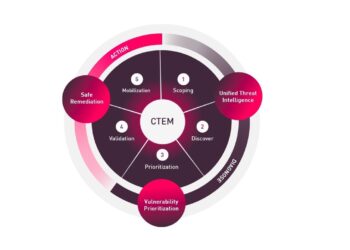To stay competitive, the organization adopts cloud, AI, chatbot and other applications which also brings lots of cybersecurity risk. Protecting digital data, IT infrastructure is now a big challenge for all cybersecurity leaders. As the amount of digital data continues to expand at an unprecedented rate, so does its value – and the challenge of keeping it safe. Data protection has become a requirement that businesses of all sizes and sectors can no longer afford to ignore. The following are three of the top reasons why data protection is essential for every business.
1. Avoiding security breaches
Security breaches are costly and have detrimental effects on any organization; the caused damages can include not only legal liabilities to customers and partners but the loss of consumer trust and brand reputation as well as government fines for noncompliance with privacy regulations. Consumers are increasingly aware of how valuable their personal information can be as well as the dangers of it being leaked. Besides customer data, businesses’ intellectual property or trade secrets are at risk as well.
Although there is an ongoing debate whether insiders or outsiders pose a greater threat to sensitive data, what is clear is that, given the growing number of high-profile data breaches, businesses need a proactive approach towards protection their sensitive data.
2. Ensuring business continuity
Data is among the most important assets a company has. Any information that is stored by an organization, from financial data and payment details to clients’ contact and confidential information, needs to be properly protected. Business continuity threats that endanger sensitive data come in many different forms, including cyber attacks and security incidents, but disaster risks, data outages and regulatory changes as well.
Consumers are becoming more privacy-conscious, and businesses must commit to protecting consumer data in order to maintain and improve their brand value, to prove transparency and trustworthiness, as well as to strengthen and grow their business. By being aware of the dangers and taking reasonable precautions, companies can substantially reduce the chances that a business continuity threat will disrupt the organization.
- Read More: Ransomware Grows 118% in 2019, McAfee Labs Report Shows Firms Face 504 New Threats per minute
3. Meeting compliance requirements
Governments around the world are rolling out new regulations on how sensitive customer information like name, address, credit card number, etc. can be collected, stored and used. The European Union’s General Data Protection Regulation (GDPR) has fueled the appearance of data protection laws on a global level, including Brazil, California, Thailand, and India. Influenced by the GDPR, India’s Personal Data Protection Bill 2018 (PDPB) proposes to regulate the processing of personal data of individuals by both government and private entities incorporated in India and abroad. The framework also states how to collect, process and store personal data.
Data privacy laws and regulations put further pressure on companies to be more responsible, more accountable and more transparent. Organizations that fail in the protection of sensitive data information risk hefty fines and losing valuable business relationships for non-compliance.
There are many ways to safeguard sensitive data, including the education of employees as well as software and hardware solutions. As no single stand-alone method offers a comprehensive data security solution, it is important for businesses to understand their vulnerabilities and protect themselves accordingly.
















